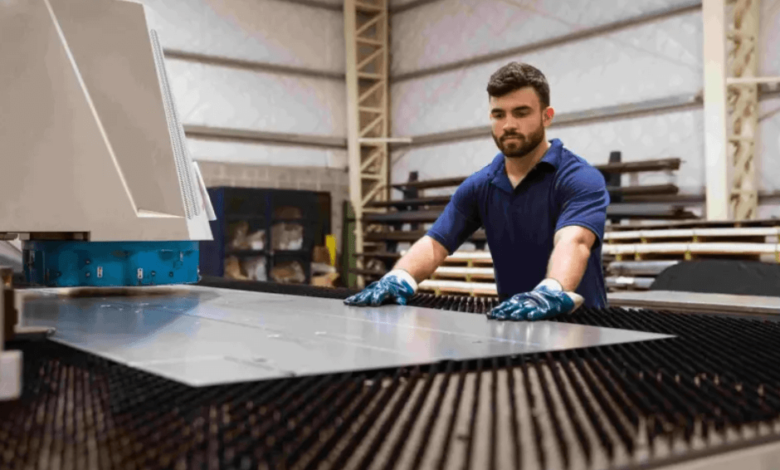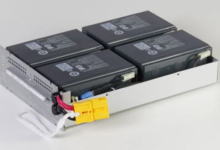Trusted Sheet Metal Fabrication Manufacturer: Engineered for Precision

Introduction
In the age of advanced manufacturing, the role of a Sheet Metal Fabrication manufacturer is more critical than ever. From small startups to global industrial giants, companies rely heavily on fabricated sheet metal for producing machinery, structural components, enclosures, and more. The growing demand for durability, lightweight construction, and high accuracy has placed sheet metal fabrication at the core of modern production.
This article delves into the essential role of sheet metal fabrication manufacturers, the processes they employ, the materials they work with, and the industries they serve. We’ll also explore how choosing the right fabrication partner can influence product performance and market success.
What Does a Sheet Metal Fabrication Manufacturer Do?
A sheet metal fabrication manufacturer transforms flat sheets of metal into finished parts or assemblies using a combination of cutting, bending, forming, and welding techniques. Unlike metal stamping companies that focus on high-volume output, fabricators are generally involved in custom or medium-batch production.
These manufacturers often provide complete solutions that include:
- Product design and engineering support
- Prototyping and sampling
- Cutting, forming, and assembling
- Surface finishing and coating
- Quality assurance and delivery
Whether creating custom brackets or complex structural enclosures, the manufacturer ensures that every component adheres to precise specifications.
See also: Self-Massage Techniques You Can Do at Home for Instant Relief
Core Processes in Sheet Metal Fabrication
A competent sheet metal fabrication manufacturer offers a wide array of fabrication services under one roof. These often include:
1. Cutting
Laser cutting, plasma cutting, waterjet cutting, and shearing are the most common techniques. Laser cutting, in particular, is favored for its speed, accuracy, and ability to handle complex designs.
2. Bending
This step is essential in shaping parts that require structure and dimension.
3. Punching
4. Welding and Assembly
Skilled welders and robotic systems are often used to maintain quality consistency.
5. Finishing
Importance of Quality Standards
Professional sheet metal fabrication manufacturers adhere to strict quality management systems such as ISO 9001, AS9100 (for aerospace), or IATF 16949 (for automotive). These certifications demonstrate their commitment to delivering parts that meet international standards.
In addition to certifications, manufacturers typically use coordinate measuring machines (CMMs), calipers, and laser measurement tools to ensure dimensional accuracy.
Choosing the Right Sheet Metal Fabrication Manufacturer
Here are key factors to consider:
Experience and Expertise
A seasoned manufacturer understands material behavior, design feasibility, and process optimization. Their expertise can help reduce lead times, avoid costly mistakes, and improve the end product.
Capabilities and Equipment
Modern, well-maintained equipment ensures better output. CNC laser cutters, robotic welders, and automated press brakes offer both speed and precision.
Materials Used in Sheet Metal Fabrication
Depending on the application, manufacturers work with a range of materials including:
- Stainless Steel: High corrosion resistance; suitable for medical and food-grade products
- Mild Steel: Cost-effective and easy to form; ideal for structural parts
The choice of material impacts everything from the fabrication technique to the final product performance.
Applications in Different Industries
Sheet metal fabrication manufacturers cater to numerous industries by supplying custom-designed components:
Automotive
From chassis parts to exhaust systems, precision-fabricated sheet metal ensures structural integrity and design compatibility.
Aerospace
Aircraft structures demand lightweight yet strong components. Aerospace-grade aluminum and titanium are frequently used.
Construction
Sheet metal is used in ducting, roofing, cladding, and other architectural applications.
Electronics
Enclosures, heat sinks, and frames for servers, computers, and devices are fabricated with high accuracy.
Medical Equipment
Hospitals rely on fabricated metal for surgical carts, diagnostic machines, and sterilization containers.
Renewable Energy
Solar panel mounts, battery enclosures, and wind turbine components are often made through sheet metal fabrication.
Innovations in the Field
The sheet metal fabrication landscape continues to evolve through technological advancements:
Automation and Robotics
Automated cutting, bending, and welding reduce human error, increase output, and ensure consistency across batches.
CAD/CAM Integration
Design and manufacturing processes are now interconnected using software that reduces prototyping errors and accelerates production.
Digital Fabrication
AI-driven machines analyze designs and suggest optimal cutting paths, material usage, and tool selection.
Sustainability Initiatives
Top manufacturers are focusing on eco-friendly fabrication—using recyclable materials, optimizing energy use, and reducing waste.
Cost-Effectiveness of Fabrication
Contrary to belief, working with a high-quality sheet metal fabrication manufacturer can be more economical in the long run. Though initial quotes might seem higher, experienced manufacturers:
- Minimize material wastage
- Reduce rework and product returns
- Ensure long-term durability of parts
- Decrease assembly time with precision components
The overall result is better product performance, fewer breakdowns, and improved customer satisfaction.
Future Outlook
- 3D metal forming and additive manufacturing
- Real-time quality control using AI sensors
- Greater use of lightweight composites with metal integration
- Decentralized and on-demand manufacturing
These innovations will push manufacturers to adopt smarter workflows and invest in workforce training and digital infrastructure.
Conclusion
A sheet metal fabrication manufacturer plays a vital role in producing components that serve as the foundation of countless products and structures. Their expertise in materials, design, and process management directly influences product quality, durability, and functionality.
Choosing the right fabrication partner ensures that businesses can launch new products with confidence, meet market demand efficiently, and maintain a competitive edge. As technology continues to evolve, these manufacturers are not just building metal components—they’re helping shape the future of innovation and industrial success.







